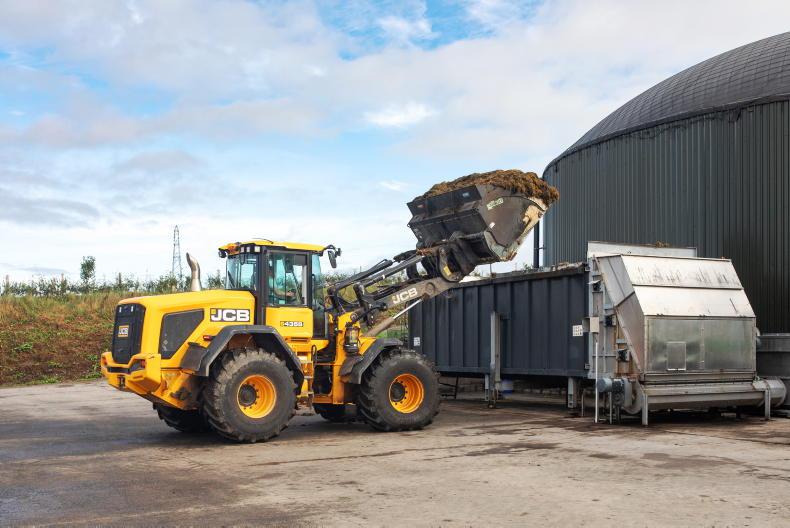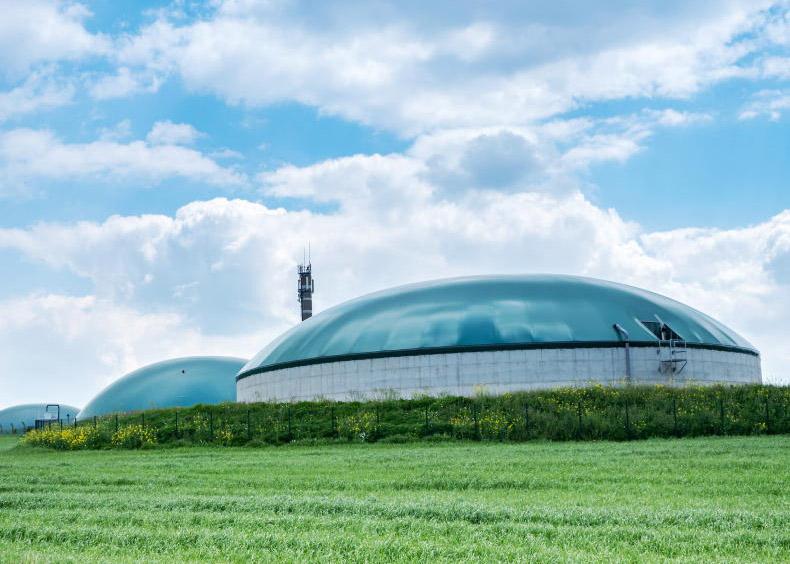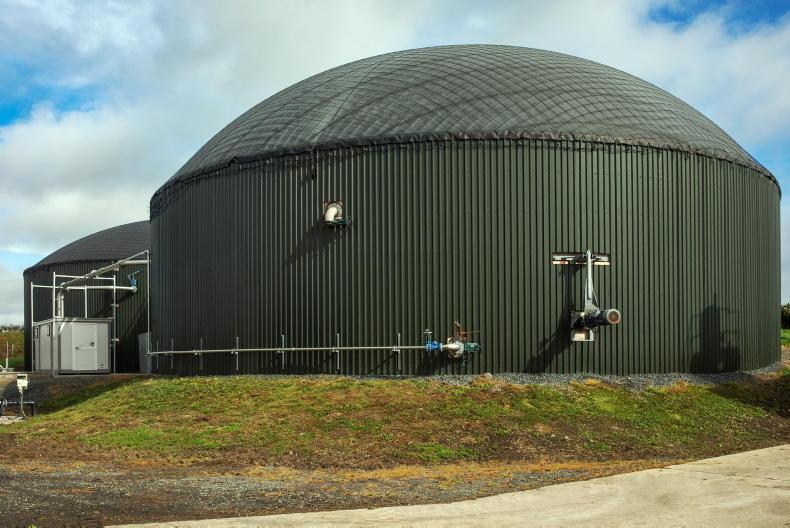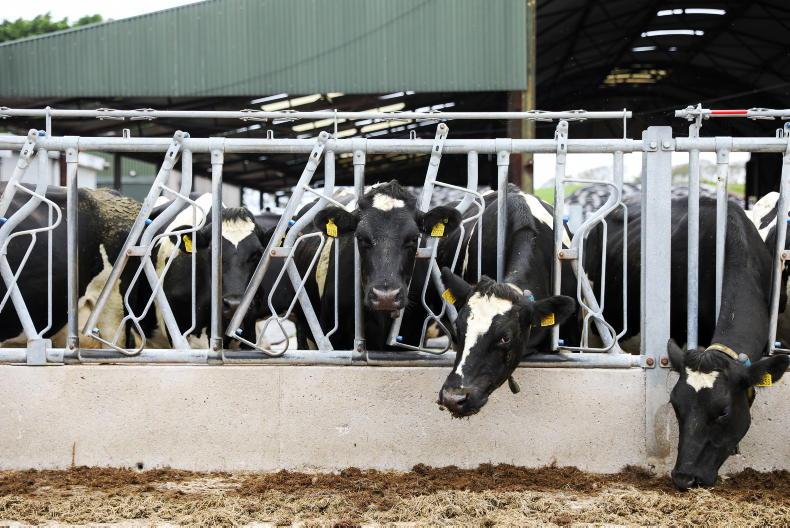Last year, the Department of Agriculture secured €40m in funding from the EU to provide capital grants to farmers and developers for constructing biomethane plants.
The funding was announced alongside the publication of the National Biomethane Strategy, a roadmap outlining how the Government will support the replacement of 10% of Ireland’s natural gas use with indigenous biomethane by 2030.
Some 18 projects received offers for the capital grant, including new build anaerobic digestion (AD) plants and upgrade works to existing AD plants. Under the terms of the scheme, the projects have to be built and capable of producing biomethane by December 2025.
However, with a typical build and commissioning timeframe for new biomethane projects of around 18 months, many questioned the feasibility of completing these projects on time. Furthermore, many projects had expected the Renewable Heat Obligation (RHO) to come into force shortly after the strategies publication, creating an immediate, long-term demand for high-value biomethane.

The AD industry is expected to present new opportunities to farmers.
Currently, it appears that the RHO will not come into effect until later this year and may be several years before it is actually enforced. This has left projects struggling to find buyers for the gas, meaning they cannot secure finance, further casting doubt on the viability of the 18 projects.
However, in a statement to the Irish Farmers Journal, the Department of Agriculture remains confident that the projects will be completed.
Numbers
The Department stated that five of the 18 projects are upgrades to existing plants, while 13 are new-build AD plants.
The most recent progress reports from the successful projects were submitted to the Department in December 2024.
There has been some movement however, as the Department have said that, of the 18 projects awarded the grant, nine of them have commenced construction or upgrades.
As of the end of January, none of the projects have withdrawn from the scheme.
Penalties
The Department was asked if the projects which are not completed by December 2025 will face potential penalties, as outlined in the terms and conditions of the scheme.
While not confirming the imposition of penalties, the Department said “A key criteria for the scheme states that approved projects must be completed no later than 31/12/2025. All projects will have to be completed by Q4 2025 as per the stringent requirements laid down by the EU”.
Asked if the deadline could be extended, allowing for more time for the projects under construction or yet to start, the Department once again doubled down on the completion date and the stringent EU requirements, implying an extension wasn’t possible.
We also asked the Department what happens to the unallocated funding as, it’s likely that many of the nine projects will withdraw and the funding sent back to Europe. In a defiant response, the Department stated “the €40 million funding from REPowerEU has been fully allocated”.
Strategy update
The National Biomethane Strategy, led by the Department of Agriculture and the Department of the Environment, Climate and Communications (DECC), included 25 comprehensive actions aimed at kickstarting the biomethane industry in Ireland. The strategy aimed to inject a sense of urgency into the departments and state/semi-state agencies, with many of these actions required to be completed by the end of 2024.
An implementation group was tasked with carrying out these actions, but it is unclear how many times it has met since its formation. We asked both departments for an update on the progress of the implementation of the actions. DECC responded, stating that the strategy implementation is ongoing, and the group is now engaging with action owners and key stakeholders to track the delivery of actions.
They expect an end-of-year progress report to be submitted to the Government’s Heat and Built Environment Taskforce shortly. However, while not directly addressing our query, a review of the strategy actions shows that the Government is behind target on many actions. The deadlines for as many as 19 of the 25 actions have been missed, many of which are crucial to the progression of the industry.
Priorities
However, despite the slow progress, the Department doubled down on its commitment to the AD sector. Speaking at the Energy Ireland Renewable Gas Conference last week, Brian Carroll, Assistant Secretary leading on Built Environment, Retrofit and Heat Policy at DECC, stated they have a number of priorities to support the 140 new AD plants required to meet 2030 biomethane targets.
These include implementing all of the actions in the strategy, such as publishing the biomethane sustainability charter, for which a draft has been prepared following consultation. This will be published on the new Biomethane Information Hub on the gov.ie website, which has yet to be launched.
He also mentioned that a priority is to provide financial support in the form of further capital grants from 2026-2030. A business case is currently being worked on to provide grants to support 1.5 TWh (terawatt hour) of biomethane capacity. It is unclear if this is the first phase of the new round of grants, however, as the 2030 target is for 5.7 TWh of capacity.
Carroll said the RHO will be introduced to stimulate demand for biomethane. Having missed their deadline to publish the draft high-level scheme, the details are expected at some point in 2025.
He also mentioned that streamlining consenting processes is also a focus. Currently, waste-based AD plants attempting to secure an EPA waste licence are experiencing delays well in excess of 12 months.
He added that community engagement and sharing of information will also be a focus of his department. A communications strategy is under development to help foster trust in local communities. More on the Renewable Gas Conference next week.
The author Stephen Robb is currently involved in a family/community proposal for an anaerobic digestion facility in Co Donegal.
In short
Nine of the 18 biomethane projects which secured capital grants are under construction. These project must be completed by December 2025 with no prospect of an extension. The Government remain behind on most of their plans for anaerobic digestion.
Last year, the Department of Agriculture secured €40m in funding from the EU to provide capital grants to farmers and developers for constructing biomethane plants.
The funding was announced alongside the publication of the National Biomethane Strategy, a roadmap outlining how the Government will support the replacement of 10% of Ireland’s natural gas use with indigenous biomethane by 2030.
Some 18 projects received offers for the capital grant, including new build anaerobic digestion (AD) plants and upgrade works to existing AD plants. Under the terms of the scheme, the projects have to be built and capable of producing biomethane by December 2025.
However, with a typical build and commissioning timeframe for new biomethane projects of around 18 months, many questioned the feasibility of completing these projects on time. Furthermore, many projects had expected the Renewable Heat Obligation (RHO) to come into force shortly after the strategies publication, creating an immediate, long-term demand for high-value biomethane.

The AD industry is expected to present new opportunities to farmers.
Currently, it appears that the RHO will not come into effect until later this year and may be several years before it is actually enforced. This has left projects struggling to find buyers for the gas, meaning they cannot secure finance, further casting doubt on the viability of the 18 projects.
However, in a statement to the Irish Farmers Journal, the Department of Agriculture remains confident that the projects will be completed.
Numbers
The Department stated that five of the 18 projects are upgrades to existing plants, while 13 are new-build AD plants.
The most recent progress reports from the successful projects were submitted to the Department in December 2024.
There has been some movement however, as the Department have said that, of the 18 projects awarded the grant, nine of them have commenced construction or upgrades.
As of the end of January, none of the projects have withdrawn from the scheme.
Penalties
The Department was asked if the projects which are not completed by December 2025 will face potential penalties, as outlined in the terms and conditions of the scheme.
While not confirming the imposition of penalties, the Department said “A key criteria for the scheme states that approved projects must be completed no later than 31/12/2025. All projects will have to be completed by Q4 2025 as per the stringent requirements laid down by the EU”.
Asked if the deadline could be extended, allowing for more time for the projects under construction or yet to start, the Department once again doubled down on the completion date and the stringent EU requirements, implying an extension wasn’t possible.
We also asked the Department what happens to the unallocated funding as, it’s likely that many of the nine projects will withdraw and the funding sent back to Europe. In a defiant response, the Department stated “the €40 million funding from REPowerEU has been fully allocated”.
Strategy update
The National Biomethane Strategy, led by the Department of Agriculture and the Department of the Environment, Climate and Communications (DECC), included 25 comprehensive actions aimed at kickstarting the biomethane industry in Ireland. The strategy aimed to inject a sense of urgency into the departments and state/semi-state agencies, with many of these actions required to be completed by the end of 2024.
An implementation group was tasked with carrying out these actions, but it is unclear how many times it has met since its formation. We asked both departments for an update on the progress of the implementation of the actions. DECC responded, stating that the strategy implementation is ongoing, and the group is now engaging with action owners and key stakeholders to track the delivery of actions.
They expect an end-of-year progress report to be submitted to the Government’s Heat and Built Environment Taskforce shortly. However, while not directly addressing our query, a review of the strategy actions shows that the Government is behind target on many actions. The deadlines for as many as 19 of the 25 actions have been missed, many of which are crucial to the progression of the industry.
Priorities
However, despite the slow progress, the Department doubled down on its commitment to the AD sector. Speaking at the Energy Ireland Renewable Gas Conference last week, Brian Carroll, Assistant Secretary leading on Built Environment, Retrofit and Heat Policy at DECC, stated they have a number of priorities to support the 140 new AD plants required to meet 2030 biomethane targets.
These include implementing all of the actions in the strategy, such as publishing the biomethane sustainability charter, for which a draft has been prepared following consultation. This will be published on the new Biomethane Information Hub on the gov.ie website, which has yet to be launched.
He also mentioned that a priority is to provide financial support in the form of further capital grants from 2026-2030. A business case is currently being worked on to provide grants to support 1.5 TWh (terawatt hour) of biomethane capacity. It is unclear if this is the first phase of the new round of grants, however, as the 2030 target is for 5.7 TWh of capacity.
Carroll said the RHO will be introduced to stimulate demand for biomethane. Having missed their deadline to publish the draft high-level scheme, the details are expected at some point in 2025.
He also mentioned that streamlining consenting processes is also a focus. Currently, waste-based AD plants attempting to secure an EPA waste licence are experiencing delays well in excess of 12 months.
He added that community engagement and sharing of information will also be a focus of his department. A communications strategy is under development to help foster trust in local communities. More on the Renewable Gas Conference next week.
The author Stephen Robb is currently involved in a family/community proposal for an anaerobic digestion facility in Co Donegal.
In short
Nine of the 18 biomethane projects which secured capital grants are under construction. These project must be completed by December 2025 with no prospect of an extension. The Government remain behind on most of their plans for anaerobic digestion. 









SHARING OPTIONS